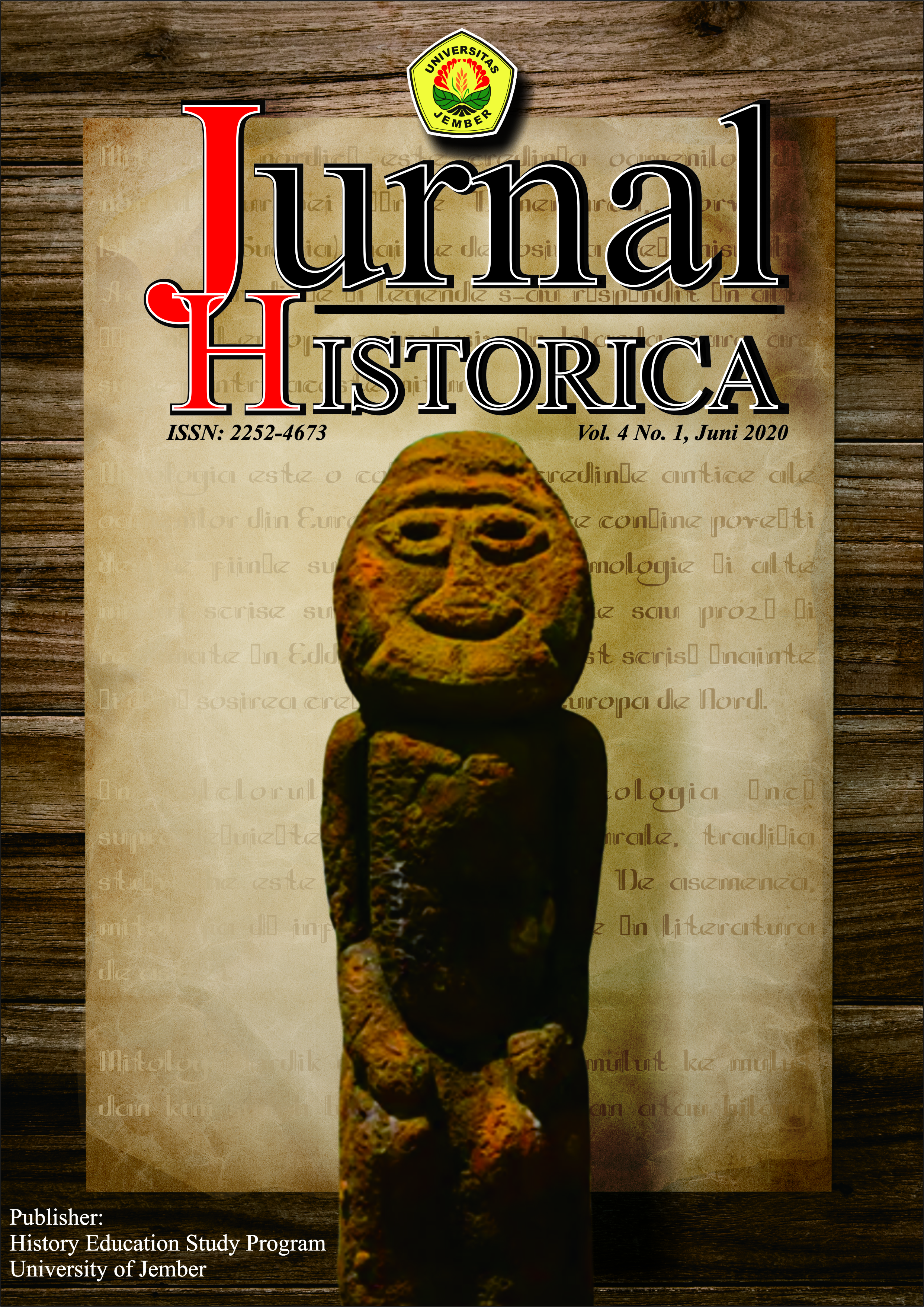The Effectiveness of Stopmotion Learning Media Based on Inquiry in Historical Learning in the Age of Industrial Revolution 4.0
Abstract
Industrial Revolution 4.0 era became a new era that used many virtual and sophisticated technologies. For this reason, it is necessary to develop learning media that meet the demands of the industrial revolution era 4.0 and 2013 curriculum. Analysis learner is carried out at SMA 1 Tanggul, SMAN 2 Tanggul, and SMAN Jenggawah with 106 respondents indicating 99% of students consider history important to learn. 23% of students understand historical material, and 71% of students want learning media in the form of videos that are not boring. The purpose of this research is to develop inquiry-based stopmotion learning media that is validated by experts and has high effectiveness for use in historical learning. The research method used is the Bord and Gall development model. Data collection techniques used observation, questionnaire, interview, and test. The results of the expert validation test on the development of learning media were: material experts 82% with good qualifications, media experts and design 82.5% with good qualifications. User test results are 88% with good qualifications. Product effectiveness can be seen from the gain score. Small group trials gained a gain score 0.9 with qualifications having high effectiveness and large group trials gained a gain score of 0.8 with qualifications having high effectiveness. Based on the results presented, inquiry-based stopmotion learning media can be used as a learning media of history learning in schools for students.




